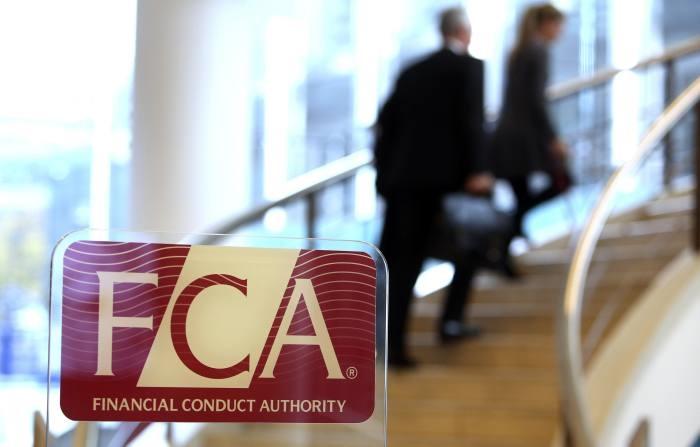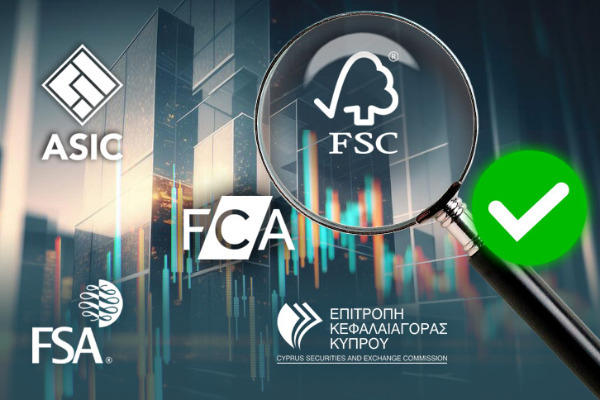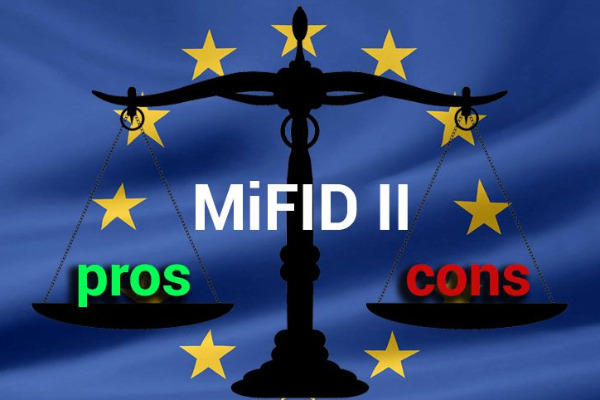Other than the wording similarity, FSA and the FCA used to be the same organization. What makes them different today and what story goes behind the name change?
Forex market is a massive financial market with approximately $5.3 billion traded daily. Currently, there is a vast number of forex brokers who just started their business and opened doors to forex traders. Those many choices make it even more difficult for every trader to the best broker. Despite its huge scale, there is no single global entity to secure the market and protect the traders from scams and other illegal practices. This is where regulatory bodies play their roles.
To ensure the safety of a broker, we can check if the broker's regulated or not. Under the regulatory contracts, the brokers must operate in strict compliance with the rules and policies of the regulator. Should the bodies find a broker breaking its guidelines, they can get sanctioned by the regulator to protect the clients. These agencies must be registered and licensed in the country where their operations are based, which also determines the standard of their quality. As a result, some regulatory bodies are more trusted than others and considered more reputable in the forex industry.
In this context, almost every forex trader might have heard of FCA and FSA. Both are usually listed among the most recognized regulators in the trading industry. But sometimes, the names got mixed up or they are mentioned as one entity. So what are the differences between FCA and FSA?
The FSA
The Financial Service Authority (FSA) was an agency that regulated the financial markets in the United Kingdom between 2001 and 2013. It is not to be confused with the still active FCA agencies from other jurisdictions like Seychelles' FSA, Japan FSA, South Korean FSA, and so on.
The UK's FSA had undergone some changes and then formally replaced by two new bodies. In fact, throughout its operation time, FSA has changed its name several times. FSA was originally established in 1985 as the Securities and Investments Board, and then adopted the Financial Service Authority name in 1997 until 2013 when it was dissolved.
The agency was established in the UK under the Financial Services and Market Act 2000. It was mainly responsible for regulating the UK's financial activities, including banks, financial advisors, insurance companies, intermediaries, and even entities engaged in the mortgage business.
Based on the Financial Services and Market Act, FSA had at least four primary objectives:
- Encouraging market confidence in the UK financial system,
- raising public awareness and understanding of the UK financial system,
- securing adequate consumer protections, and
- reducing the incidence impact of financial crime.
Enhancing financial stability was added to the list a little while later.
There are several reasons for the replacement of FSA. It was mainly caused by the financial crisis of 2008 that affected most countries in Europe including the UK. The government officials decided to revise the original structure and system of the UK financial markets by passing the Financial Service Act 2012 and dissolved the FSA in early April 2013.
The agency was seen as untrustworthy and had several flaws that led to a lack of regulation such as the misspelling Protection Payment Insurance which wasn't able to save the UK from financial collapse. This eventually leads to the formation of two new agencies: the FCA and the Prudential Regulation Authority of the Bank of England.
The FCA
As we have mentioned before, the FCA is the successor of the FSA and now has become one of the most popular regulators worldwide. The independent agency was launched on the 1st of April 2013 to replace the previous body, the FSA, which had considered failed in saving UK's financial system after the 2008 crisis. The FCA is currently under the watch of the UK's Treasury and Parliament.

At first glance, the FCA holds the same responsibility as the FSA, which is to ensure the functioning of the UK's financial markets. If we look more closely, the FCA has three main objectives:
- Protecting consumers,
- protecting and enhancing the integrity of the UK financial system, and
- promoting healthy competition between financial services providers in consumers' interests.
These objectives were based on the Financial Services and Markets Act 2000 and amended by the Financial Services Act 2012. The latter made several changes to how financial firms are regulated in the UK and also made sure that the financial sector is more secure and works more effectively after the financial crisis of 2008.
See Also:
As an independent body, the FCA does not receive any government funding and manages its own budget by raising fees from member firms that the FCA regulates. Compared to its predecessor, the FCA was granted more power from the UK's governing body so that the body can enforce its mandate, including rule-making, investigative, and enforcement powers.
Brokers regulated by the FCA must go through a series of strict requirements in order to obtain a valid license from the FCA. One of them requires each broker to protect their clients in case of bankruptcy with a compensation fund of up to $50,000 under the Financial Services Compensation Scheme (FSCS). The FCA is also known to be highly active in its supervision, in which the body is constantly active in checking the brokers' performance and compliance, as well as performing investigates cases.
Furthermore, FCA-regulated brokers will receive a unique license number that is registered in the FCA for vital business data. The FCA website provides detailed information on a regulated broker, especially regarding their compliance to the regulator's policies which can be useful for traders. These brokers usually display their FCA license on their official website, along with the benefits that traders can receive under the FCA framework.
FSA Vs FCA: What's the Difference?
The apparent difference between the FSA and the FCA is the name: the FCA is a conduct authority rather than a services authority. So generally, the primary function has shifted to conducting the financial market and making sure it works in the correct manner, rather than only maintaining the financial services.
Therefore, the FCA is more customer-focused compared to the FSA, or in other words, the FCA focuses more on the interests of the customer. In comparison, the FSA had to manage institutions and at the same time looking out for customer dissatisfaction, which proves to be ineffective especially during financial conflicts.
By aiming to focus more on the customer, the task of regulating the capital adequacy of the largest financial firms (approximately 1,700 companies) which the FSA previously handled is now outsourced to the Prudential Regulation Authority (PRA), a sister regulator of the FCA. Under the PRA, the Financial Policy Committee (FPC) oversees the major issues relevant to the industry. Both the PRA and the FPC are parts of the Bank of England.
The UK government officials are now entrusting the duties to create stability in the financial market through macro and microeconomic regulation to the Bank of England. At the same time, the FCA is assigned with responsibilities to monitor the conduct of financial institutions in order to keep a transparent and ethical financial environment for all investors.
The FCA has successfully eradicated a wide variety of financial crimes and frauds and has quickly gained the respect and attention of investors from around the world. So far, it shows the regulatory body's strong commitment to ensuring the investors' safety and brokers' transparency in various financial transactions.
Other than that, the FCA has several new powers that weren't present in the FSA. For one, the FCA can ban certain products if they find enough reasons to do so, rather than having to consult their decisions first for every single product like the FSA. This means that the FCA is able to protect the consumers in a stronger and quicker manner. This can also help to solve the issues of companies not following the regulator's guidelines and producing illegal products. The other power comes from the continuation of the controversial Section 166 reviews of the FSA, which grants the FCA new power to request firms to pay for a review into their businesses if they get too many complaints from the clients.
Despite the changes, several aspects of the body still remained constant. One of them is that the FCA is mostly operated by the same people who worked with the FSA. They also work in the same location and regulate the same financial firms and companies that were regulated under the FSA.
Bottom Line
We can conclude that the FCA is the replacement of the FSA due to the agency's poor job in handling the financial crisis of 2008. The FCA is a self-regulatory body responsible for maintaining stability in the UK financial market and enhancing the FSA's previous tasks. Several changes were made after the replacement, including a more client-focused operation and the establishment of new powers. Therefore, for traders, the transition from the FSA to the FCA is mostly advantageous as the latter can provide better protection with a more customer-based regulation.
When choosing a broker, it is essential to check where the broker is registered and which policies the regulatory body follows. The FCA has proven to be one of the best regulatory bodies that can ensure the safety and compliance of a broker. By claiming to be more customer-focused, the FCA regulates the brokers by imposing a range of strict guidelines and regulatory protocols. Another advantage is that finding an FCA-regulated broker is very easy. Many global brokers such as Exness, Alpari, and HotForex have obtained an FCA license because it can add to the broker's own reputation.
You can try to register in one of the FCA-regulated brokers, try their forex demo accounts, and step up to the live accounts should you find that the FCA framework may suit your needs on trading safety.

 Dedicated FREE FOREX VPS
Dedicated FREE FOREX VPS Free FOREX Virtual Private Server
Free FOREX Virtual Private Server MT4 Demo Contest, Get $500
MT4 Demo Contest, Get $500 Sign Up for an Account, Claim 60% Deposit Bonus
Sign Up for an Account, Claim 60% Deposit Bonus Free MT4/MT5 VPS 2024
Free MT4/MT5 VPS 2024 Send E-mail and Get Free Merchandise
Send E-mail and Get Free Merchandise $1K Refer a Friend Bonus for Pepperstone Pro clients
$1K Refer a Friend Bonus for Pepperstone Pro clients Maximize Your Earnings with 100% Deposit bonus
Maximize Your Earnings with 100% Deposit bonus Trade to Win, $5,000 Monthly Demo Contest
Trade to Win, $5,000 Monthly Demo Contest Claim 30% + 15% Deposit Bonus from LiteFinance
Claim 30% + 15% Deposit Bonus from LiteFinance


















2 Comments
NAGARAJAN C
Apr 1 2021
Can you provide the Name of the brokers that are registered under FCA?
BrokerXplorer
Apr 5 2021
Good morning, Nagarajan. You can read about brokers regulated under FCA here.